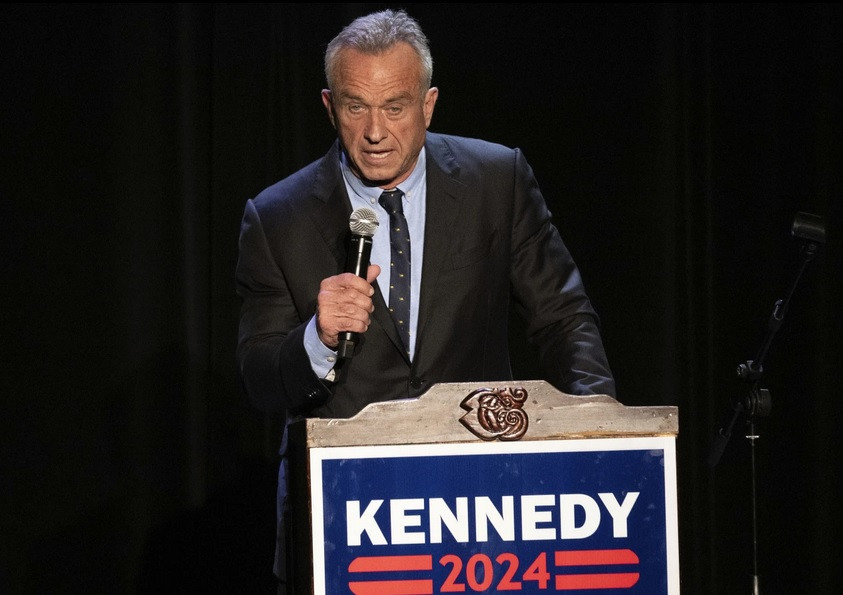Independent or third-party candidates are becoming unpredictable factors that could "cause difficulties" for Democratic President Joe Biden and former Republican President Donald Trump in the election taking place next year.

Robert F. Kennedy Jr., a member of the famous family in American politics, announced on October 9 that he would run for the White House in 2024 as an independent candidate. Philosopher Cornel West made the same choice last week. A new political party, No Labels, is stepping up its recruitment efforts.
According to the AP news agency (USA), the possibility of an independent or third-party candidate winning the presidential election is not high, but they can take away voters supporting the chosen candidates of the Democratic and Republican parties.
In early October, Gallup released a new poll showing that 63% of adults believe that the Republican and Democratic parties have done such a poor job of representing the American people that a third major party is needed. This is one of the highest numbers since Gallup first asked the question in 2003.
Historically, however, voters who want a third party rarely translate that desire into actual significant support for third-party candidates.
The Trump and Biden campaigns have been quick to note that it would be difficult, if not impossible, for an independent candidate without a large endowment or political base to appear on the ballot in most states.
No Labels is a big exception, backed by an army of paid signature gatherers and guaranteed to be on the ballot in 11 states. In Arizona alone, for example, minor party candidates must collect more than 34,000 signatures to qualify for the general election. Signatures must be collected in at least five different counties, and at least 10% of the signatures must come from counties with populations under 500,000. An independent candidate must collect more than 43,000 signatures. Michigan requires a minor party candidate to collect 44,619 signatures, while an independent candidate needs 12,000.
But an independent candidate doesn’t have to qualify in every state to have a profound political impact. Brendan McPhillips, who ran for President Biden in Pennsylvania during the last election, remembers it well. Like many Democrats, he still credits Green Party candidate Jill Stein for helping Trump win Pennsylvania in 2016.
That year, Mr. Trump led Democratic rival Hillary Clinton in Pennsylvania by just 44,000 votes, while Ms. Stein won by nearly 50,000 votes. Many Democrats believe that Ms. Clinton could have won if she had won votes from Ms. Stein’s constituents. “It’s dangerous,” Mr. McPhillips said of independent and third-party candidates.
According to Tin Tuc newspaper